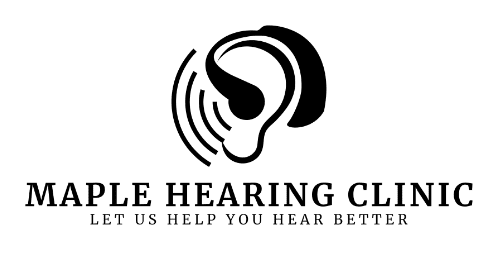Understanding your hearing is essential for meaningful daily interactions and relationships. If you’ve noticed changes in your ability to hear, taking a hearing test at Maple Hearing Clinic is the crucial first step. Throughout your appointment, we aim to paint a clearer picture of your hearing health, offering practical insights that go beyond numbers. A proper diagnosis not only enhances communication but also ensures you don’t miss out on the full spectrum of everyday sounds and conversations. It marks the beginning of a journey towards improved hearing, and we’re here to support you at every stage.
Before the Hearing Test
Before the hearing test begins, your audiologist will ask you a variety of questions about your hearing health history. This may involve a discussion about family medical history, as hearing loss can sometimes have a hereditary component. The audiologist will inquire about any noticeable symptoms you may have experienced, such as difficulty hearing certain frequencies or issues with hearing clearly in conversations.
Common causes of hearing loss that may be discussed include exposure to loud noises over time, aging, earwax buildup, infections, ototoxic medications and certain medical conditions like diabetes. This personalized pre-test consultation ensures that the upcoming hearing test is tailored to your specific needs and potential risk factors, enhancing the accuracy and relevance of the evaluation.
What is the Testing Process?
Understanding your hearing is crucial for improved communication and well-being. We conduct key assessments to thoroughly examine your auditory abilities:
- Pure-tone testing: Pure-tone testing measures your ability to hear different tones at varying frequencies, identifying the softest sounds you can hear.
- Speech testing: Speech testing evaluates your ability to hear and understand spoken words, providing insights into your speech reception threshold and overall speech perception.
- Tympanometry: Tympanometry assesses the middle ear’s function by measuring the eardrum’s movement in response to changes in air pressure, aiding in the identification of issues like fluid in the middle ear.
-
Visual Reinforcement Audiology (VRA)– A behavioral hearing test performed on infants and toddlers aged between 6 months and 2.5 years old which involves the child turning towards a toy reinforcer in response to a sound. This test is performed with the child sitting on the parent’s lap in a sound booth.
-
Conditioned Play Audiometry (CPA)-A test performed on children aged between 2.5 and 5 years old which involves behavioral conditioning using toys such as blocks or pegs to obtain a response to sounds at different levels and frequencies using earphones or headphones.
- Auditory brainstem response (ABR) testing: ABR testing evaluates the electrical activity in the auditory nerve and brainstem in response to sound, providing information about the function of the auditory pathway. It is often used for newborn hearing screenings or when traditional behavioral testing is challenging.
A proper diagnosis at Maple Hearing Clinic sets the stage for a more connected and fulfilling life. Whether it’s identifying the quiet hum of a loved one’s voice or engaging in conversations without missing a beat, our audiologists are dedicated to ensuring your journey toward better hearing is supportive and comfortable.
Going Over the Results
After your hearing test at Maple Hearing Clinic, the audiologist will discuss the results with you, explaining your hearing thresholds and addressing any concerns or questions you may have. This consultation is designed to provide a clear understanding of your hearing profile, allowing you to make informed decisions about any necessary interventions or next steps.
